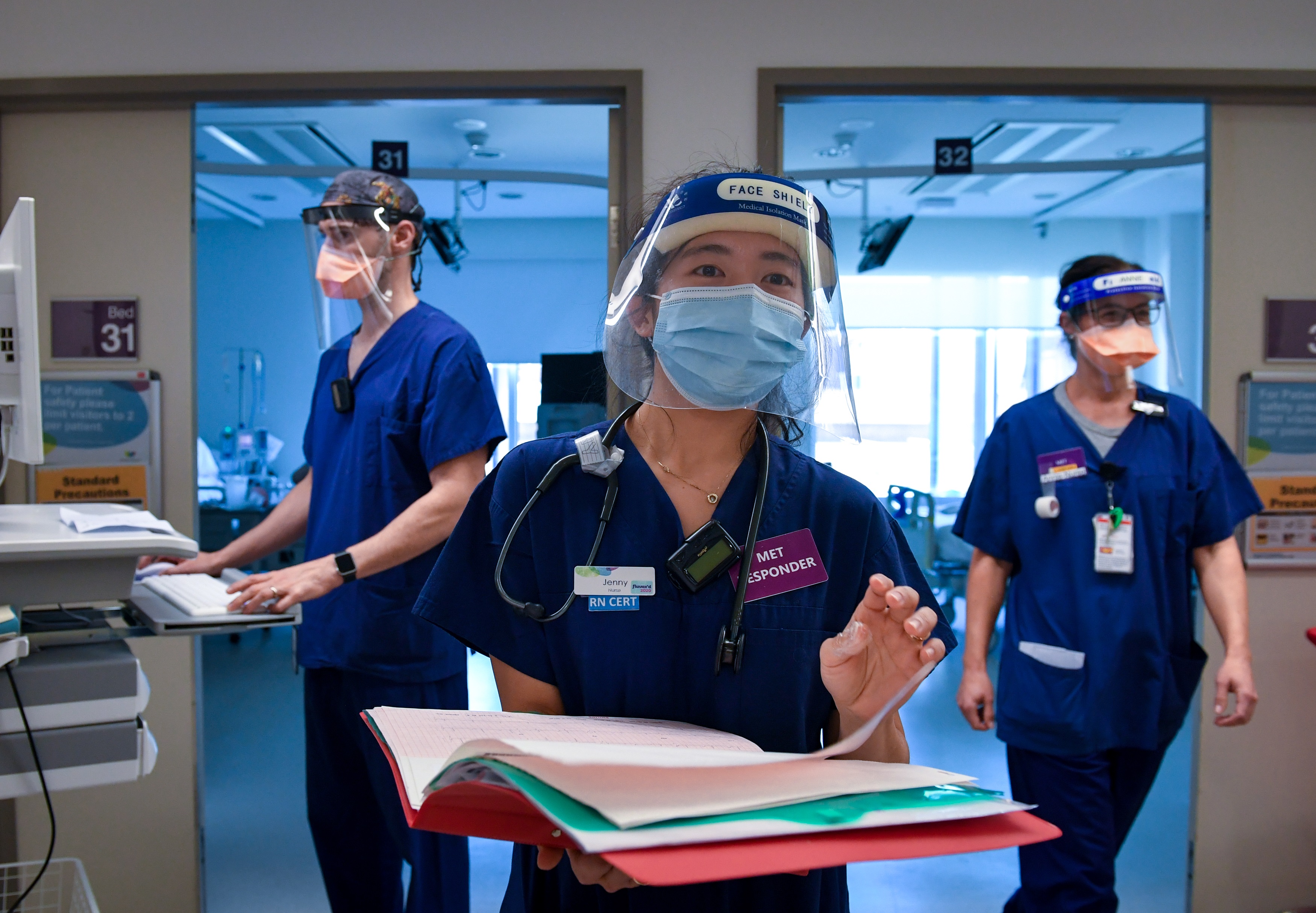The pandemic took its toll on the psychological wellbeing of healthcare workers with new research revealing their mental health deteriorated over time.
A new Western Health and Deakin University study found there was a significant and persistent negative impact on the wellbeing of health professionals over a 22-month period.
This is one of the first Australian studies to investigate the longer-term impact of the pandemic on healthcare workers.
Senior Research Fellow Dr Sara Holton, Centre for Quality and Patient Safety Research-Western Health Partnership said the research involved measuring the depression, anxiety and stress of 1,470 Australian clinicians.
Staff were asked to complete surveys across three timepoints during the pandemic (May-June 2020, October-December 2020 and November 2021-January 2022). 
"This study indicates a considerable proportion of nurses, midwives, doctors and allied health staff experienced psychological distress during the pandemic and their wellbeing was worse at the third survey timepoint than the first," Dr Holton said.
Other key findings include:
- The proportion of healthcare workers who reported moderate to extreme symptoms of depression, anxiety and stress significantly increased from just over one in 10 to around a third as the pandemic progressed.
- Nurses and midwives reported significantly worse psychological wellbeing than doctors and allied health staff.
- Living with school-aged children was associated with lower levels of depression and anxiety among healthcare workers in the study, which suggest that living with others is protective of psychological wellbeing.
Adjunct Professor Shane Crowe Western Health Executive Director of Nursing and Midwifery, who was also on the research team, said the longitudinal studies were a crucial tool for engaging with the workforce.
"With the support of our leadership team and Deakin University we were able to gather robust information about staff wellbeing during the pandemic, including what was working and what wasn't," Adj Prof Crowe said.
"The findings of the research have been used to directly inform the way health services support staff now and into the future."
The latest paper from the research team, which was published in the Australian Health Review Journal, found that hospital clinical staff would benefit from ongoing and continued wellbeing support during and after pandemic waves.
Previous research has shown wellbeing initiatives introduced by Western Health helped support staff with pandemic-related stress and anxiety.
The health service has utilised research, employee surveys and engagement exercises to monitor and respond to the psychological wellbeing needs of staff.
"The health and wellbeing of our workforce is of the utmost importance, and we are continuing to develop innovative ways to ensure staff are supported," Adjunct Professor Sandy Schutte, Western Health Executive Director of People, Culture and Communications said.
"Along with enhanced psychological supports for staff, our recent focus has been on developing a fatigue management plan and flexible rostering.
"We are running programs to support our managers to perform stress assessments, gain skills to stay mentally well and recognise stress and fatigue in their staff and respond appropriately.
"We also hold listening circles with staff working in areas that were identified as requiring higher levels of support to ensure we are responding to their needs."
Dr Holton said the research team planned to continue collecting data to further understand the long-term impacts of the pandemic on healthcare workers and whether these effects persist or subside over time.
The research team also included Professor Bodil Rasmussen, Dr Karen Wynter and Deakin University's Institute for Health Transformation.
Read the full study: https://www.publish.csiro.au/ah/Fulltext/AH23120
*If you, or someone you know, needs support contact: Lifeline: 13 11 14, Beyond Blue: 1300 224 636, or Headspace: 1800 650 890.
